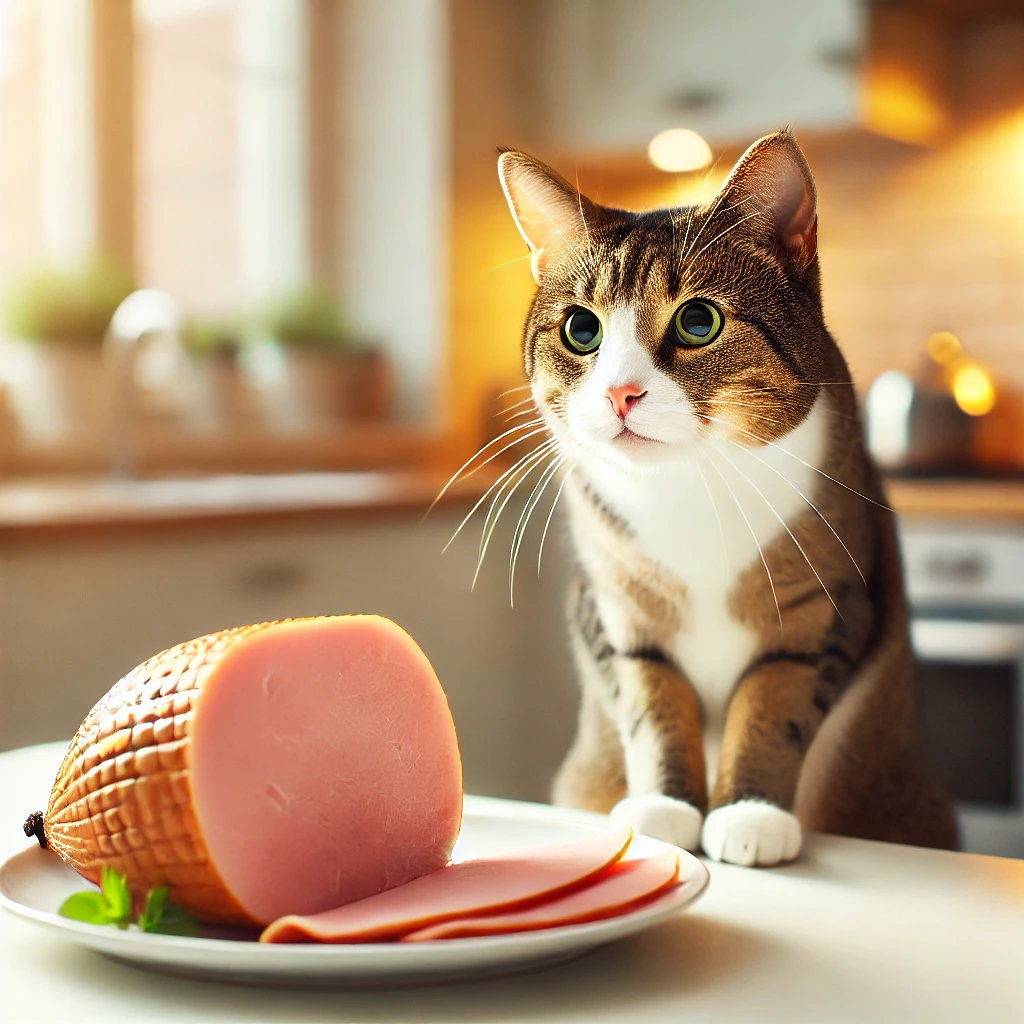Meat products, particularly ham, are a global favorite—loved by humans and undoubtedly desired by pets as well. Chances are you’ve caught your cat staring at you, eyes wide with hope, while you prepared a ham sandwich. If you’ve ever paused and thought, “Can cats eat ham?” the answer may surprise you. Yes, they can—but there are a few important details to consider first.
In This Article:
- Can cats eat ham?
- Can kittens eat ham?
- What type of ham is safe for cats?
- Is ham harmful to cats?
- Benefits of ham for cats
- How to safely feed ham to cats
Can Cats Eat Ham?
Yes, cats can consume ham. As obligate carnivores, cats rely on meat to fulfill their nutritional needs. However, ham isn’t the healthiest choice. Store-bought deli meats are highly processed and packed with sodium, which can be harmful to cats. If you decide to treat your feline companion to ham, ensure it’s in small portions and only occasionally. Remember, cats thrive on complete and balanced meals—cat food is specially formulated to deliver all the nutrients they need. Treats like ham should remain just that: treats.
Can Kittens Eat Ham?
While a tiny piece of ham every now and then won’t harm a kitten, it’s generally best avoided. Kittens have sensitive digestive systems and require carefully balanced diets for proper growth and development. Introducing unnecessary foods like ham could disrupt their delicate nutrition.
What Type of Ham Is Safe for Cats?
If you plan to feed ham to your cat, opt for low-sodium, thoroughly cooked ham. The ideal choice is fresh ham that you cook yourself, ensuring no harmful preservatives, seasonings, or spices are included. Most deli hams contain additives like garlic or onion powder, which are toxic to cats and must be strictly avoided. Feeding raw ham is also risky, as it may harbor bacteria such as Salmonella or E. coli.
Is Ham Harmful to Cats?
Processed or heavily seasoned ham can pose significant risks to your cat’s health. High sodium content may cause dehydration, gastrointestinal distress, or salt poisoning in extreme cases. Additives like garlic and onion are particularly dangerous, as they can damage red blood cells and reduce oxygen circulation in the bloodstream. Additionally, raw ham should be avoided due to its potential to carry harmful pathogens.
Benefits of Ham for Cats
When offered responsibly, ham can provide some valuable nutrients. Here are a few key vitamins and minerals ham contains that can support your cat’s well-being:
- Vitamin B6: Essential for red blood cell production and the proper functioning of the heart, brain, and nervous system.
- Selenium: A natural antioxidant that supports immune system health and contributes to skin health.
- Zinc: Promotes a healthy coat and skin while supporting overall immune function.
- Iron: Helps prevent anemia and improves oxygen transportation in the bloodstream.
How to Safely Feed Ham to Cats
To minimize risks, follow these steps when feeding ham to your cat:
- Cook it yourself: Purchase raw, unseasoned ham and prepare it at home to ensure it’s free from additives.
- Choose low-sodium options: If buying deli cuts, check the label carefully and select ham with minimal sodium content.
- Feed in moderation: Ham should never replace your cat’s regular diet—offer it sparingly as an occasional treat.
- Consult your vet: If you’re unsure about introducing ham into your cat’s diet, speak to your veterinarian for guidance.
While ham can add variety to your cat’s treats, remember that it doesn’t provide the complete nutrition cats require. For a healthy and balanced diet, prioritize high-quality cat food tailored to your feline’s specific needs.

